By Film Noir Blonde and Mike Wilmington
The Film Noir File is FNB’s guide to classic film noir, neo-noir and pre-noir on Turner Classic Movies (TCM). The times are Eastern Standard and (Pacific Standard). All films without a new review have been covered previously in Film Noir Blonde and can be searched in the FNB archives (at right).
Pick of the Week: Friday is Noir Day on Summer of Darkness
Nothing beats a stroll a down a dark slick street to cool off on a hot summer night. The second week of TCM’s Summer of Darkness boasts as strong a lineup as the first. Curated and hosted by the Czar of Noir himself, Eddie Muller of the Film Noir Foundation and the Noir City film festivals, TCM’s Summer of Darkness is one festival of shadowy dreams and gun crazy nightmares you won’t want to miss.
Friday, June 5
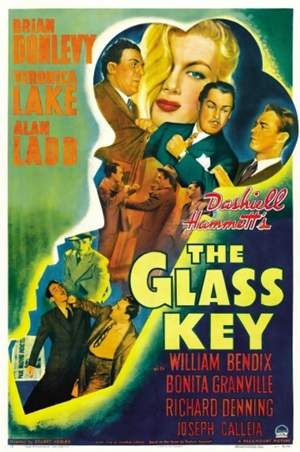 6 a.m. (3 a.m.): “The Glass Key” (Stuart Heisler, 1942). Brian Donlevy, Alan Ladd and Veronica Lake star in this stylish remake of the 1935 film based on Hammett’s popular novel. The story follows a ruthless political boss and his personal adviser, who become entangled in a web of organized crime and murder involving the daughter of a rising gubernatorial candidate. Akira Kurosawa once claimed this film to be the inspiration for his classic samurai flick “Yojimbo” (1961).
6 a.m. (3 a.m.): “The Glass Key” (Stuart Heisler, 1942). Brian Donlevy, Alan Ladd and Veronica Lake star in this stylish remake of the 1935 film based on Hammett’s popular novel. The story follows a ruthless political boss and his personal adviser, who become entangled in a web of organized crime and murder involving the daughter of a rising gubernatorial candidate. Akira Kurosawa once claimed this film to be the inspiration for his classic samurai flick “Yojimbo” (1961).
7:30 a.m. (4: 30 a.m.): “Laura” (Otto Preminger, 1944).
9 a.m. (6 a.m.): “Ministry of Fear” (Fritz Lang, 1944). Ray Milland, just released from a British mental institution, wins the wrong cake at a charity raffle and becomes ensnared in a nightmarish web of espionage and murder. Graham Greene wrote the source novel. Co-starring Marjorie Reynolds and Dan Duryea.
10:30 a.m. (7:30 a.m.): “Murder, My Sweet” (Edward Dmytryk, 1944).
12:15 p.m. (9:15 a.m.): “Danger Signal” (Robert Florey, 1945). More top-notch caddery from that expert lounge snake, Zachary Scott, pulling the wool over Faye Emerson’s and other eyes. 1:45 p.m.
(10:45 a.m.): “Detour” (Edgar Ulmer, 1945).
3 p.m. (12 p.m.): “Mildred Pierce” (Michael Curtiz, 1945).
5 p.m. (2 p.m.): “Deadline at Dawn” (Harold Clurman, 1946). Bill Williams is a sailor on leave who has just one New York City night to prove his innocence of murder. Susan Hayward and Paul Lukas are the shrewd dancer and philosophical cabbie trying to help him. Clifford Odets’ script is from a Cornell Woolrich novel.
6:30 p.m. (3:30 p.m.): “Johnny Angel” (Edwin L. Marin, 1946). Middling noir with George Raft hunting down killers and Claire Trevor.
8 p.m. (5 p.m.): “The Gangster” (Gordon Wiles, 1947). A sleeper. Good, neglected gangster noir, based on novelist (and later, screenwriter) Daniel Fuchs’ superb Brooklyn low-life chronicle, “Low Company.” (Read it, if you haven’t.) With Barry Sullivan, Shelley Winters, Akim Tamiroff, John Ireland and Harry Morgan.
9:45 p.m. (6:45 p.m.): “Gun Crazy” (Joseph H. Lewis, 1950).
11:30 p.m. (8:30 p.m.): “Tomorrow is Another Day” (Felix Feist, 1951). An ex-con (Steve Cochran) adjusts violently to post-prison life. With Ruth Roman.
1:15 a.m. (10:15 p.m.): “Nightmare Alley” (Edmund Goulding, 1947).
3:30 a.m. (12:30 a.m.): “Night Moves” (Arthur Penn, 1975). Underrated ’70s private-eye noir, set in the Florida Keys, with Gene Hackman as the tough P. E. and Melanie Griffith, Edward Binns and James Woods in fine support. Written by Alan Sharp and directed by Arthur Penn (“Bonnie and Clyde”).
Saturday, June 13
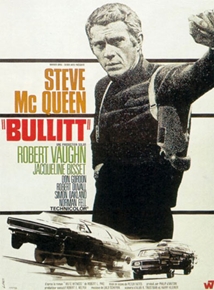 8 p.m. (5 p.m.): “Bullitt” (Peter Yates, 1968). One of the more stylish cop-movie thrillers. With Steve McQueen at his coolest, Jacqueline Bisset at her loveliest, Robert Vaughn at his slimiest – plus the car chase to end all car chases.
8 p.m. (5 p.m.): “Bullitt” (Peter Yates, 1968). One of the more stylish cop-movie thrillers. With Steve McQueen at his coolest, Jacqueline Bisset at her loveliest, Robert Vaughn at his slimiest – plus the car chase to end all car chases.
Sunday, June 14
2:15 p.m. (11:15 a.m.): “A Kiss Before Dying” (Gerd Oswald, 1956). A charming psychopath (Robert Wagner) preys on two sisters (Joanne Woodward, Virginia Leith) in this tense adaptation of the novel by Ira Levin (“Rosemary’s Baby”). With Jeffrey Hunter and Mary Astor.
12 a.m. (9 p.m.): “Greed” (Erich von Stroheim, 1924). Erich von Stroheim’s silent masterpiece about the dark side of life in San Francisco and Death Valley, with Gibson Gowland, Jean Hersholt and ZaSu Pitts as an odd, deadly triangle. Mutilated and cut by nearly six hours by MGM and Irving Thalberg, this is still one of the all-time great films.
Monday, June 15
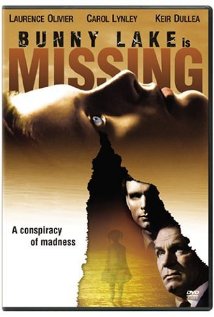 12 p.m. (9 a.m.): “The Fallen Idol” (Carol Reed, 1948). mesmerizing story of a little French boy (Bobby Henrey), a French diplomat’s son, who hero-worships the embassy butler (Ralph Richardson), but mistakenly comes to believe his idol has murdered his wife, and keeps unintentionally incriminating him. Graham Greene adapted the script from his short story.
12 p.m. (9 a.m.): “The Fallen Idol” (Carol Reed, 1948). mesmerizing story of a little French boy (Bobby Henrey), a French diplomat’s son, who hero-worships the embassy butler (Ralph Richardson), but mistakenly comes to believe his idol has murdered his wife, and keeps unintentionally incriminating him. Graham Greene adapted the script from his short story.
5:45 p.m. (2:45 p.m.): “Bunny Lake Is Missing” (Otto Preminger, 1965). Bunny Lake is an American child kidnapped in London, Carol Lynley her terrified mother, Keir Dullea her concerned uncle, Anna Massey her harassed teacher, Noel Coward her sleazy landlord, and Laurence Olivier the brainy police detective trying to put the pieces of the puzzle together. The most important of those pieces: Was Bunny ever really there at all? A neglected gem; based on Evelyn Piper’s novel.
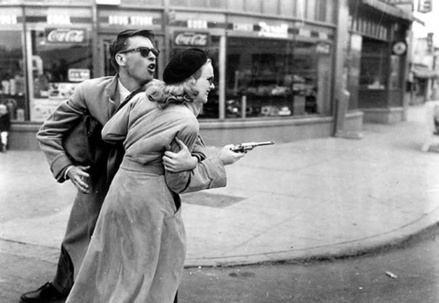





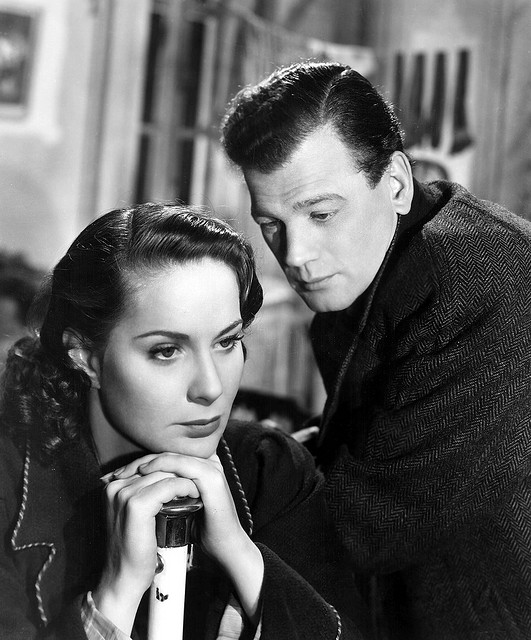
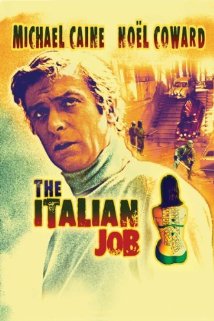
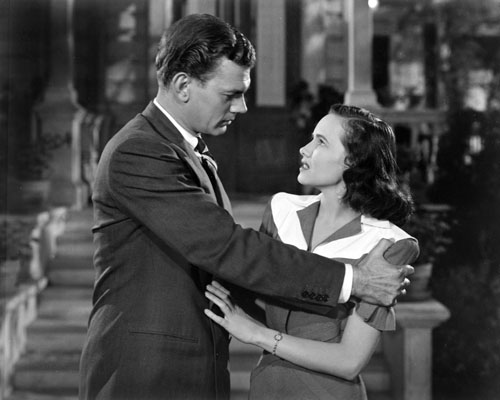
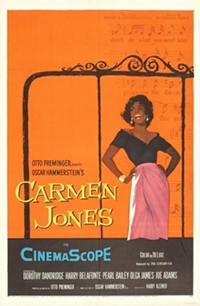
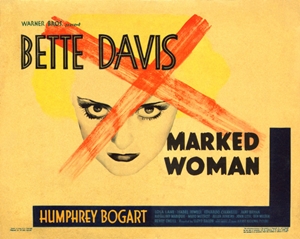





From FNB readers